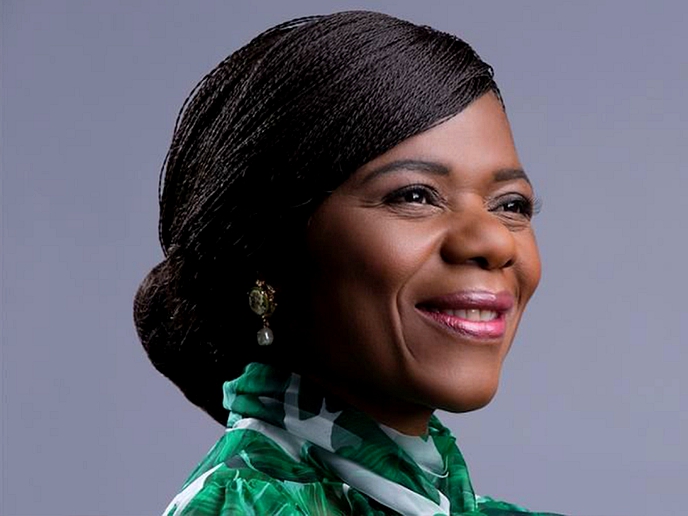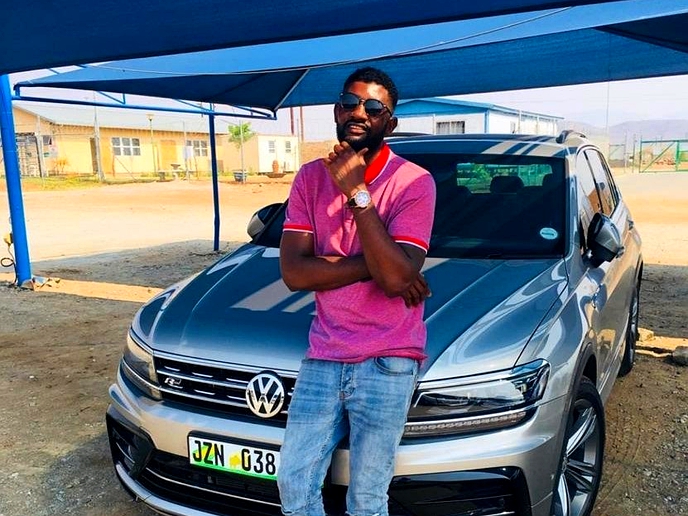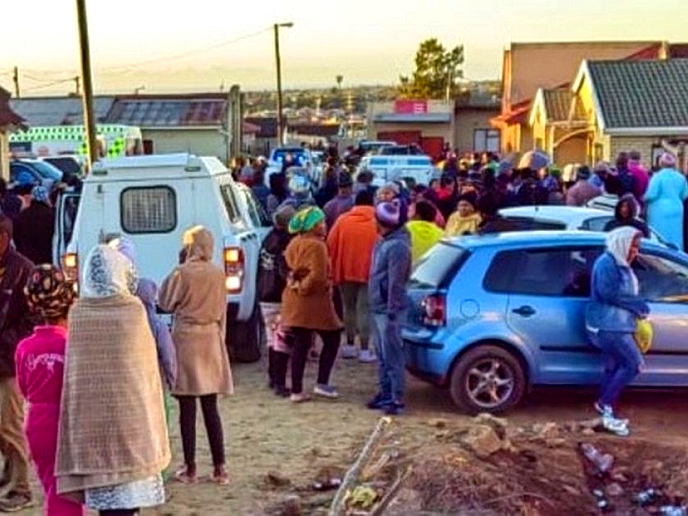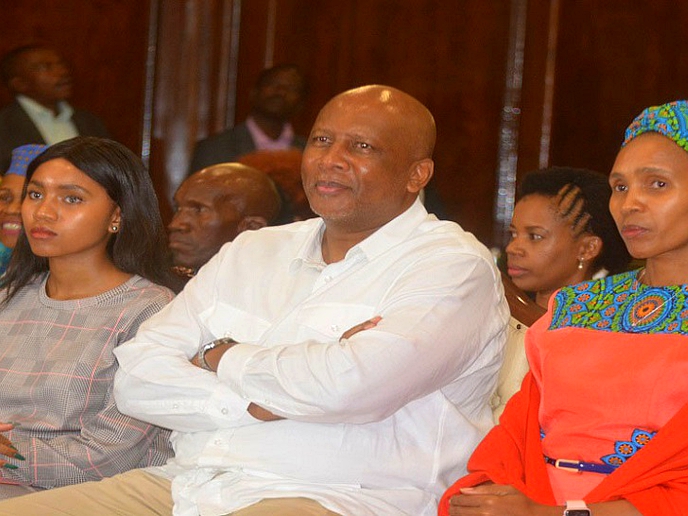ONLY 13 members of the group of self-proclaimed “military veterans” who held ministers hostage over demands for veterans’ benefits last week do not have a criminal record.
africa
Oct. 25, 2021
OWN CORRESPONDENT
7 min read
Military veterans’ more like a gang of criminals threatening the nation
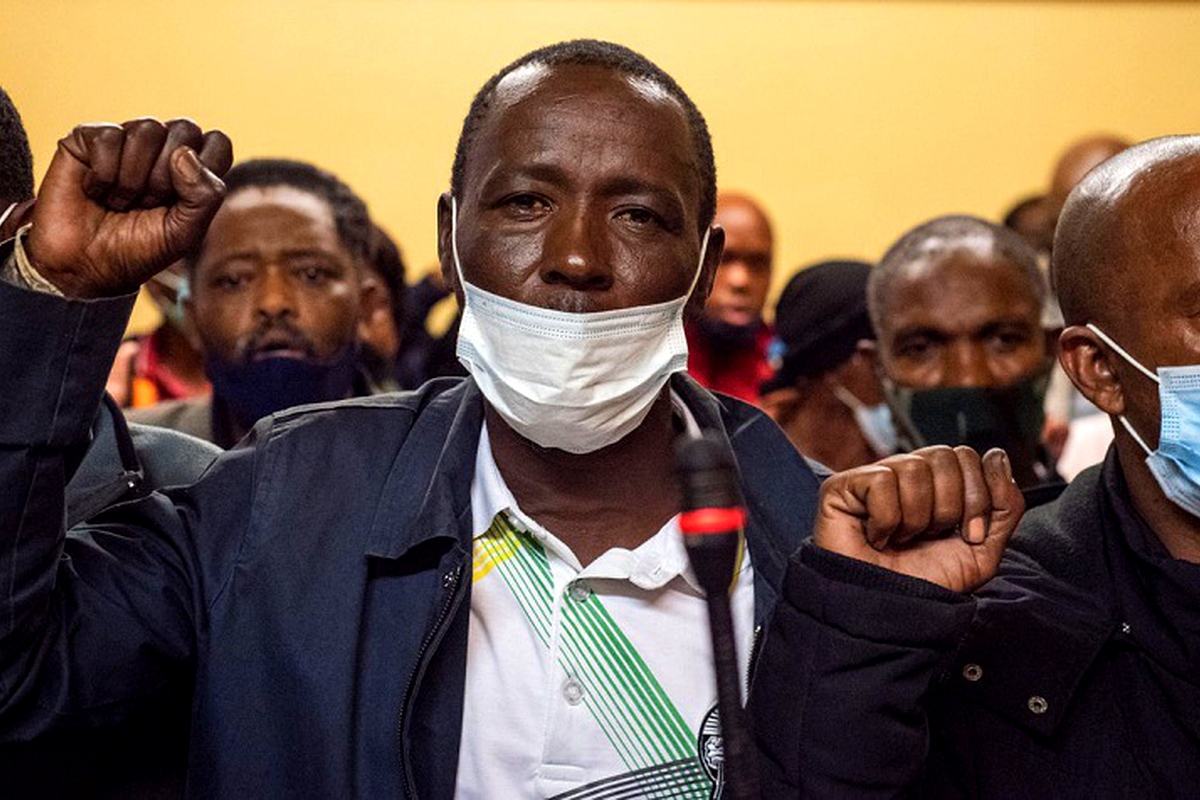
Military veterans appear at the Kgosi Mampuru Correctional Facility's court during their bail hearing after holding Cabinet ministers hostage in Irene, southern Pretoria, on October 19
Story highlights
This emerged at the bail hearing for the group of 53, with the Hawks announcing that 29 have previous convictions for “minor cases” and 11 have previous convictions “which include murder, kidnapping, armed robbery, rape etc”.
Questions have been swirling over the 53, whose names and ages were released by the NPA to journalists on Tuesday. The youngest of the group, at 43, would have been just 15 years old when anti-apartheid fighters were either demobilised or began to be integrated into the new South African National Defence Force (SANDF) in 1993. This process saw soldiers from Umkhonto weSizwe (MK), the Azanian People’s Liberation Army (Apla) and other bodies either absorbed into the SANDF, if they wished to continue with military service, or demobilised if they did not.
A DM168 investigation suggests that just one of the 53 veterans is on record as having integrated into the SANDF: Joseph Khulu Simelane, who according to documents seen by DM168 was dishonourably discharged in 1998. A military source who wished to remain anonymous said that dishonourable discharges are given for serious offences, ranging from being absent without leave for a lengthy period to having committed a crime.
A dishonourable discharge prohibits the soldier in question from claiming benefits in terms of the 2011 Military Veterans Act.
In court on Friday, the most serious criminal records of the veterans were laid bare. Group leader Lwazi Mzobe served 15 years in prison for murder, attempted murder and robbery with aggravating circumstances. Fellow former MK fighter Muzukisi Ronyuza did time for possessing forged bank notes. Pius Manzi has a previous conviction for illegal sand mining, and Sabata Nhlankana was convicted on three previous cases of car theft and rape.
The 53 individuals are members of a group calling itself the Liberation Struggle War Veterans (LSWV), which emerged in public for the first time in late 2020 to lobby for benefits for former fighters against apartheid. At that time the group was organising under the banner of the ANC’s uMkhonto weSizwe Military Veterans’ Association (MKMVA) but since the official disbanding of the wing by the ANC in July 2021, they have termed themselves the LSWV.
As reported by Daily Maverick, the group’s spokesperson, Mzobe, is employed by the eThekwini municipality, as is another key figure, Themba Jeffrey Dlamini. A number of eThekwini municipal workers were fingered by whistle-blowers within the ANC as helping to instigate July’s violence and looting in KwaZulu-Natal. Mzobe is no stranger to this kind of action, having been at the forefront of previous military veterans’ protests in Durban, which included blocking the N3 in April 2021 and attacking foreign traders in September and November 2020. There are also reports of the military veterans’ involvement in protests against foreign truck drivers, which coincided with attacks on trucks travelling between Durban and Johannesburg.
Hefty demands
The group ended up taking Minister in the Presidency Mondli Gungubele, Minister of Defence Thandi Modise, Deputy Minister of Defence Thabang Makwetla and other delegates from the Presidency hostage for three hours in the St George’s Hotel in Irene on the evening of 14 October. The politicians were only released after they were rescued by the police’s Special Task Force.
In court at his bail hearing, Mzobe protested that “no ministers were touched”. He implied that the ministers could never have been in serious danger because there were “10 or more” bodyguards present with guns.
A hotel staff member told the Sunday Times that a member of the group had phoned on the day of October 14 to demand the use of a conference room and food to be served.
The meeting was reportedly cordial until the veterans unveiled their major demand: the payment of R4.2-million each to 9,000 veterans. It was at this point that Modise attempted to end the meeting and was prevented from doing so.
The financial demand has increased dramatically over the past year. In November 2020, when the group met with Deputy President David Mabuza in Pretoria, they were asking for a once-off payment of R250,000 each. It is unclear what has prompted the escalation of the demand.
Mzobe told the court on Friday: “During the time of exile we were promised a lot of things: housing, better jobs, reparations, and once-off gratuity. None of those promises were fulfilled.”
A complex history
A highly sympathetic article on the veterans’ demands published in The New York Times this week caused outrage from some South African observers, with former Mail & Guardian editor Nic Dawes suggesting that “the lack of political context” in the story “borders on malpractice”.
Dawes pointed out that, to understand the veterans’ issues, one had to take into account the history of the post-liberation settlement and the way in which MK veterans have been used in recent years to prop up factional battles of the ANC, particularly in support of Jacob Zuma.
African Defence Review director Darren Olivier told DM168 that only one officially recognised veterans group exists in South Africa: the South African National Military Veterans Association (SANMVA), which includes veterans from the South African military, MK and Apla.
Membership is verified by investigators from the Department of Military Veterans to determine who is eligible for existing veterans’ benefits, which include housing, healthcare, employment placement, burial subsidies, and preferential treatment for government tenders.
Enjoy our daily newsletter from today
Access exclusive newsletters, along with previews of new media releases.
“The Liberation Struggle War Veterans group, on the other hand, has questionable provenance, unclear membership with unrealistic claims, and appears to be a replacement for part of the factional political arm of the MKMVA rather than a legitimate veterans group,” Olivier told DM168.
Olivier pointed out that the LSWV has claimed in the past to have 40,000 members. When the integration and demobilisation period began in 1993, however, MK had 28,888 members and Apla had 6,000 – making it impossible for all LSWV members to have been authentic fighters, especially because many would have died by now. The LSWV’s claimed membership figures have since fluctuated: in court on Friday, Mzobe put the figure at “about 4 to 5,000”.
Mzobe has claimed that the once-off “gratuity payment” that was supposed to be disbursed to anti-apartheid fighters during the demobilisation period never happened. In reality, about R225-million (almost R1-billion today) was paid out.
Olivier says that the process was not perfect, mainly because MK and Apla did not have accurate personnel records. One problem was that some fighters used “combat names” and tracking their real identities proved impossible. Another was that both MK and Apla had seen an influx of thousands of new members between 1990 and 1993, who joined local self-defence units in what Olivier terms “a mostly ad hoc and uncontrolled process with minimal training”, during which few records were kept.
“In cases where records were nonexistent, some local commanders used the opportunity to demand bribes in order to vouch for people in their units, excluding those who refused to pay, and vouching for imposters,” Olivier said.
In addition, some fighters – mainly teenagers who had been in the struggle for three years or less – simply opted not to present themselves for demobilisation, in this way missing out on payments. Such payments would in any case have been minimal because of the short duration of their service. But there were opportunities in subsequent years, including when the Department of Military Veterans was established in 2011, for those who missed out to be picked up by the system.
“The available evidence suggests that those wrongly excluded were no more than a couple of thousand people,” says Olivier. DM168
Tailored for you



